
Yogurt and dairy products are foods rich in calcium - Illustration photo
Calcium helps maintain strong bones and teeth, increases muscle strength, and supports nerve and hormone function.
Although dairy products like milk and yogurt are common sources of calcium, many fish, plant foods, and supplements also contain this essential mineral.
Dairy products
Dairy products are one of the richest sources of calcium. They also contain protein, which helps maintain muscle. Foods like yogurt also provide probiotics that are good for the gut, and often contain other nutrients like potassium, zinc, magnesium, and phosphorus.
Calcium content of some dairy products:
Cheddar cheese: 120mg per slice
Whole-fat Greek yogurt: 260mg per cup
Whole milk: 300mg per cup
Soybeans
Soy products like tofu are often processed with calcium sulfate, a salt that helps maintain the texture and structure of the vegetable protein. Tofu products made with this salt are a good source of calcium.
Soy milk is also often fortified with calcium and vitamin D, so that people who don't consume cow's milk still get enough of these important nutrients. Calcium content varies by brand.
The following soy products can help you meet your daily calcium needs:
Calcium-fortified soy milk: 300mg per cup
Boiled soybeans: 261mg per cup
Tofu made with calcium sulfate: 434mg per half cup
Green leafy vegetables
Green leafy vegetables provide many nutrients, including vitamins A, E, C, and K, iron, and fiber. They are also a great source of calcium. Here are the calcium contents of some green leafy vegetables:
Collard greens: 327mg per cooked cup
Kale: 177mg per cooked cup
Spinach: 141mg per cooked cup
Nuts
Some nuts also contain calcium. Almonds and sesame seeds (including almond butter and tahini, a sesame paste) both provide this mineral, along with antioxidants like vitamin E.
Antioxidants are compounds that help prevent or slow cell damage caused by free radicals.
The following nuts are particularly rich in calcium:
Almonds: 96mg per 1/4 cup
Chia seeds: 90mg per tablespoon
Foods with calcium supplements
In the United States and some countries, calcium is commonly added to juices, foods such as breakfast cereals, milk, and plant milks. The idea is that this can help reduce the incidence of diseases associated with calcium deficiency, including rickets in children and preeclampsia in pregnant women. Common supplements include:
Calcium-fortified breakfast cereals: Up to 150mg per cup
Calcium-fortified orange juice: 300mg per cup
Calcium-fortified flour: 67mg per 1/2 cup
How much calcium do you need per day?
The Recommended Daily Allowance (RDA) was established by the Food and Nutrition Board at the Institute of Medicine of the National Academies of the United States. The RDA is designed to meet the nutritional needs of most people. They vary depending on age and gender. Here is the RDA for calcium:
0-6 months: 200mg
7-12 months: 260mg
1-3 years old: 700mg
4-8 years old: 1000mg
9-13 years old: 1300mg
14-18 years old: 1300mg
19-50 years old: 1000mg
Men 51-70 years old: 1000mg
Women 51-70 years old: 1200mg
Ages 71 and older: 1200mg
Calcium deficiency can lead to symptoms such as muscle weakness and spasms, as well as numbness and tingling. More severe cases can cause mood disorders, vision loss, and cardiovascular disease, which affects the heart or blood vessels.
Chronically inadequate calcium intake can also lead to low bone mineral density. This is seen in conditions such as rickets, which causes soft and weak bones, commonly found in children. It is also seen in osteomalacia and osteoporosis, conditions that cause thin and weak bones in adults.
Source: https://tuoitre.vn/nhung-mon-an-giau-canxi-co-loi-cho-xuong-khop-20250928074840269.htm




![[Photo] Prime Minister Pham Minh Chinh attends the World Congress of the International Federation of Freight Forwarders and Transport Associations - FIATA](https://vphoto.vietnam.vn/thumb/1200x675/vietnam/resource/IMAGE/2025/10/08/1759936077106_dsc-0434-jpg.webp)
![[Photo] Prime Minister Pham Minh Chinh inspects and directs the work of overcoming the consequences of floods after the storm in Thai Nguyen](https://vphoto.vietnam.vn/thumb/1200x675/vietnam/resource/IMAGE/2025/10/08/1759930075451_dsc-9441-jpg.webp)




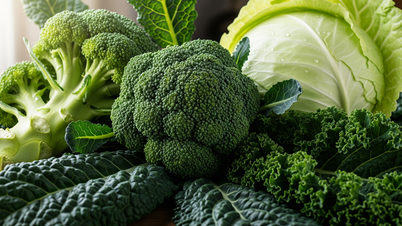
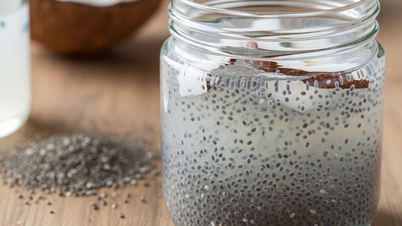
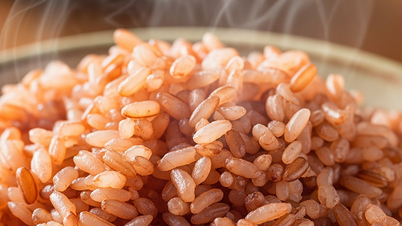
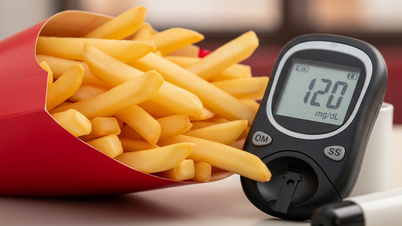
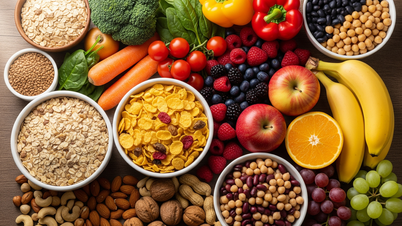
![[Video] Proposal to increase special allowances for civil servants and health officials](https://vphoto.vietnam.vn/thumb/402x226/vietnam/resource/IMAGE/2025/10/09/1759968189853_720-jpg.webp)































































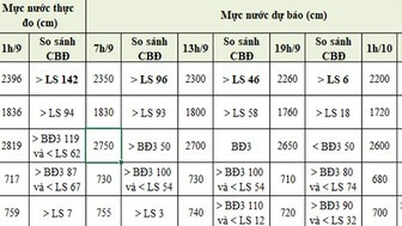



















Comment (0)